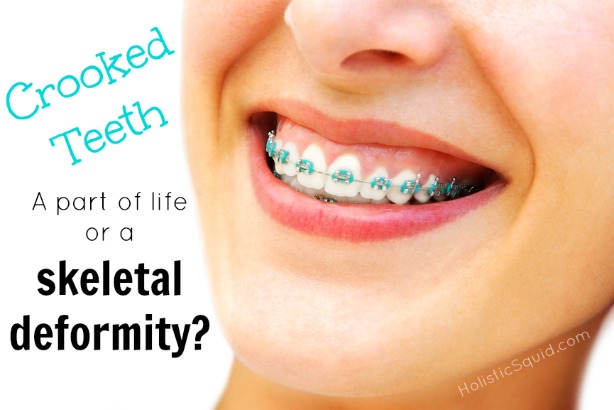
Whether for bucked teeth, over bites, under-bites, or just a bunch of crooked teeth, most adults I know have had braces at some point of their lives.
Teeth come in a bit wonky, and parents shell out the thousands to straighten them. Besides the cost and a few years of teenage embarrassment, no biggie, right? While we may take “crooked teeth” for granted, it's worth considering why they got that way in the first place. Are we really designed to have mouths that don't fit our teeth?
What nutrition has to do with tooth alignment
One man, Weston A. Price, a dentist from Cleveland who practiced in the 1930's had a hypothesis.
Crooked teeth, he theorized, were actually a skeletal deformity resulting from poor diet.
The more generations exposed to a poor diet, the more dental, skeletal, and overall health problems an individual would have including a decrease in the ability to conceive future generations.
Dr. Price traveled to remote areas of the globe and found various groups of people with wide dental arches, uncrowded straight teeth, and minimal tooth decay. These people, whether in the Swiss alps or the Aboriginal outback, all had two main things in common beyond their good health:
- They were not exposed to modern foods which at the time included sugar, white flour, vegetable oils, and canned goods.
- They consumed a diet rich in traditionally prepared foods which included animal fats. (This was true even of the healthy vegetarian peoples).
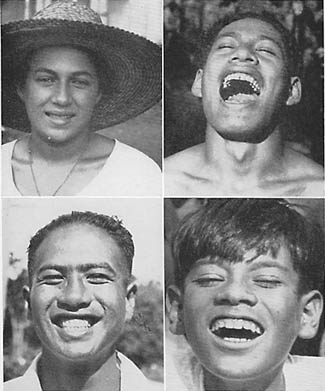 In his book Nutrition and Physical Degeneration, Price documented his research and provides copious photographs of these healthy, traditional people versus their relatives and countrymen who have been exposed to modern diets and thereby displaced from traditional foods.
In his book Nutrition and Physical Degeneration, Price documented his research and provides copious photographs of these healthy, traditional people versus their relatives and countrymen who have been exposed to modern diets and thereby displaced from traditional foods.
The imagery is striking, and clearly shows a decline in vitality as the diet becomes modernized.
For myself, when I learned about the importance of traditional foods and the plague of modern diets, food and nourishment took on a whole new meaning in my life, our household, and my practice.
My family's diet is certainly not perfect, but we aim to include nutrient dense foods as much as possible and really limit the junk.
Nutrition has become a vital part of my approach with my patients as well.
I see teeth everywhere now.
Every once in awhile, I meet someone with a gorgeous wide smile and perfectly straight teeth who has not had orthodontia. (Yes, I ask!)
In most of these cases, the individual was raised in a different country on traditional foods.
Price's old photos are certainly eye-opening, but looking at modern mouths is even more fascinating to me. Let's check out some people a bit closer to our year and zip codes. We'll observe at their facial structure, the health of their teeth, and their dietary history and see what we find! First up…
 Meet Luki – 28 years old, born and raised in Cameroon until the age of 16 when his family moved to San Jose, CA. Notice Luki's gorgeous, wide smile and perfectly spaced white teeth. Luki has never had braces or other orthodontia, and never saw a dentist until he moved to the US (his dentist was shocked by Luki's perfect teeth). Luki developed his first cavities (four of them) at that age of 25 – nine years after leaving Cameroon and adopting an American diet.
Meet Luki – 28 years old, born and raised in Cameroon until the age of 16 when his family moved to San Jose, CA. Notice Luki's gorgeous, wide smile and perfectly spaced white teeth. Luki has never had braces or other orthodontia, and never saw a dentist until he moved to the US (his dentist was shocked by Luki's perfect teeth). Luki developed his first cavities (four of them) at that age of 25 – nine years after leaving Cameroon and adopting an American diet.
What was your diet like in Cameroon?
Diverse type of traditional Cameroonian and European foods. Everything was organic, natural and fresh, of course. The diet was about 60% fresh seafood. We never had processed food, didn't even know what that meant until I moved to the States. I'd say the most processed food I had was yogurt, which I had no problem consuming. But I developed an intolerance for lactose when I moved here. Our fast food was street food which was pretty much the same that we ate at home but someone else was doing the cooking.
Did you eat “modernized” foods growing up: sugar, white flour, vegetable oils, canned foods? Starting at what age?
If that's what you call modernized food. Lol. Yeah, I ate all of that. Although the only canned foods we ate were tomatoes. I'd say from as far as I can remember – 1 year old if not younger. I think we mostly cooked with peanut or palm oil. We never cooked with animal fats or coconut oil, however we ate a lot of coconut and avocado. We didn't drink much milk, but when we did it was either powder or condensed, not fresh.
Did you eat meat? If so, what kind? How was it prepared? Was the meat lean or fatty?
Yes, I ate meat. But in much smaller quantities than I do here. Ate all kind of meat, mostly beef. Occasionally exotic meats like rabbit, crocodile, etc but that was rare. Our meat was all grass fed. The way it worked in Cameroon, cow herding was done mostly by the northerners, and they would herd their cows cross country to different cities. I grew up in the South West of Cameroon where the forest meets the ocean quite literally, so it was a top destination for them. These were the leanest cows I have ever seen!
Did you eat much grains? If so, do you know if they were soaked, soured, or sprouted before consumption?
Not too many grains – mostly rice, maize. I am sure we ate others but can't really think of any. I'd say soaked, soured rarely sprouted.
To your knowledge, has your dietary shift since leaving Cameroon affected your health?
I know my health has been really affected. I have developed a lot of skin issues, I am constantly tired as if I don't get enough energy from my foods, I have frequent loss of appetite so I eat irregularly, and I developed cavities of course.
I am more than convinced that traditional food provide the best nutrition for your health. I am speaking from first hand experience. I also find it particularly sad that organically grown food which in most cultures is “the” standard, here it is for the privileged few. Consequently, we are seeing an increasing number of people with health problems.
Based on Weston Price's theories, it's safe to say that Luki's health benefited from a fairly traditional diet rich in seafood before moving to the U.S., though modernized foods were certainly present (dried and canned milk, peanut oil, and sweets). Grains were eaten in moderation and traditionally prepared, and meats were always grass fed, pasture-raised.
Next, meet Heidy.
 She is 33 years old and from El Salvador. She has lived in Los Angeles for 13 years, and despite her perfect, broad smile, she's never had braces.
She is 33 years old and from El Salvador. She has lived in Los Angeles for 13 years, and despite her perfect, broad smile, she's never had braces.
Back in her homeland, Heidy lived with her family in a small village where chickens roaming in and out of the house may be that night's dinner, and eggs laid that morning were scrambled into breakfast. Heidy's family raised ducks (for meat and eggs), turkeys, pigs, rabbits, and various birds. They grew most of their own food and traded with neighbors for milk, beef, goat, and salt and dried cane sugar. All of their grains and beans were prepared by soaking. They grew their own corn that was dried and ground into flour locally. They also made fermented foods such as cortido (a type of Latin American sauerkraut using fermented pineapple vinegar), raw cheeses, sour cream, and fermented drinks. Foods were cooked in butter or lard from their pigs. Though Heidy does not remember it fondly, her mother and grandmother would be sure to use the whole animal when cooking – they did not waste ANYTHING! Any parts inedible were then used to make belts and clothing.
Heidy's family used salt that was grey and moist from the seaside and their sweets were limited to what they prepared like rice pudding from local pure cane sugar that was thick and brown. She remembers when her mother brought home “white” salt for the first time when she was around 11 or 12. They were all so amazed by it bright uniform texture oblivious to the significance that such a nutrient deficient food meant to their health and that of future El Salvadorian generations. Recently, the first supermarket opened in her hometown bringing both convenience and the scourge of modern foods to her people.
 Heidy developed her first cavities three years after leaving El Salvador and adopting a standard American diet. Both of her children have been raised in the U.S., exposed to an American diet, and as a result, have had many cavities from a young age.
Heidy developed her first cavities three years after leaving El Salvador and adopting a standard American diet. Both of her children have been raised in the U.S., exposed to an American diet, and as a result, have had many cavities from a young age.
Though their palates are not as narrowed as their western peers, they are also not as broad as their mother's.
Heidy has recently learned about the importance of a nutrient diet and has reverted to preparing many traditional foods for her family.
She has lost a significant amount of excess body weight that she has originally gained when she moved to the U.S. and began chowing on industrialized foods. Heidy's kids are super happy with all of their mom's delicious cooking.
Thank you Luki and Heidy for sharing your stories and your great smiles!
Look around at the faces in your family and community… Are they faces of vitality or signs of degenerating health? While braces can mask the obvious signs of “crooked teeth” they cannot undo insufficient nutrition. Weston Price believe out western civilization was over fed and under nourished. What do you think???
Luckily, it's never too late introduce real food and experience the benefits of true nourishment. For more information on eating traditional foods for health and pure gastronomical enjoyment, check out the Weston A. Price foundation, a non-profit organization dedicated to preserving and sharing the wisdom that Price uncovered and continues to play out today.
Also, check back over the next few weeks to hear my dearly departed dad's story and learn about my own dental adventures. Do you or anyone you know have a naturally perfect smile or an interesting dental-diet story to share? Let me know!



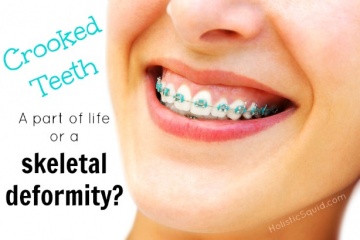


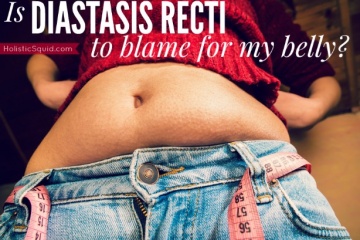
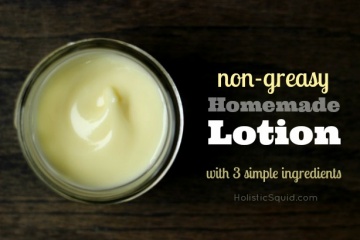
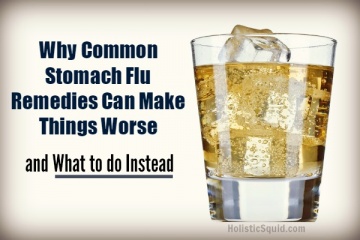
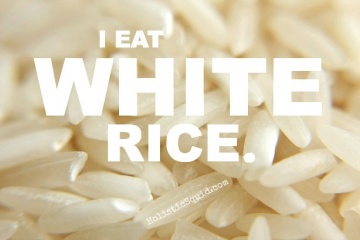

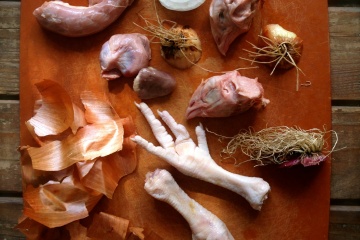
Dear Emily,
I very much like what you have written but think that although Western Price’s work was excellent, I he missed one point. Since his research was conducted at a time when Vitamins were discovered it seem appropriate that the absence of individual factors could cause specific growth problems. However this is not supported by anyone elses work while the general lack of masticatory effort has been shown constantly to be important.
We do not use much effort to gain our calorific intake, on the use it or loose it principle are jaws thus to not develop. And it is and toughness of our diet and not it’s nutritional value that is important. However this subject is very important and please do join me in supporting the facebook page “Y Crooked Teeth” and support a call to open this debate that is being strongly resisted by the profession.
All the best,
Mike
I love reading your newsletters! Always well written, witty and super informative 🙂 LOVE IT!
I am 31, the third and only child of 4 in my family with a perfect row of top teeth. Born 20 months after my older sibling, I was “ADHD” and my mother controlled this by diet. Thus, I was the only child in the family without steady exposure to white bread and sugar. I had one week in the summer that I was allowed to eat sweets, but that was all. I ate a high-protein diet with whole wheat bread and brown rice.
We grew up with modern foods like Star Crunches and margarine, but also with homecooked meals prepared from scratch. My mama also made bone broths and “leftover soup” regularly, and sodas were a rare treat. Though my teeth are the only perfect ones in my family, none of my siblings had teeth bad enough to need braces. We were all cavity-free, growing up.
Both of my parents, on the other hand, grew up in the 1950s and 60s, and could have greatly benefited from braces. They have mouthfuls of cavities, thanks to the acute industrialization of food that their parents followed after WWII. But the difference in our teeth and our parents’ teeth once again backs up Dr. Price’s principle that nutrition influences genetic expression.
I’m in the middle of reading through Deep Nutrition, and while I recognize that diet change did affect their health directly upon moving to the US, I would be curious more about what their mother’s were eating growing up and during pregnancy. We have lived in Cameroon and eaten a diet similar to Luki. Peoples there also often ferment cassava paste and eat a wide variety of well-shredded greens. If he grew up eating ‘modern’ tomato paste and milk powder, but his mother didn’t use these things, that may have contributed more to his bone structure, right?
My father has a wide jaw and perfectly straight teeth without any orthodontia. I inherited his teeth for the most part and was given a few months of orthodontics for aesthetic reasons only (to close the front gap faster, though nature would have done it eventually). He grew up on a farm in Oklahoma with his Dutch grandparents. All the urbanized family members and those that take after them genetically, have wonky teeth and/or big orthodontics bills. I’m told only one of my three kids will need braces. He was born second and very close after his brother, I gained the most weight, felt the worst and ate the worst with his pregnancy. Maybe it’s all anecdotal, but how we are eating today in the US will likely play a role in how many of our grandchildren will need orthodontics. I still believe it is possible to achieve this in the US, though I know our family feels better when we are cooking everything from scratch in Central Africa!
I appreciate the theory presented here and think that it is true in some cases. However, I also think that years of genetics are at work in many cases and no matter how wonderful a mother’s diet when pregnant and the child’s diet when growing – crooked teeth can still be an issue. If there are many generations of crooked teeth, mis-aligned jaws etc. One instance of change isn’t likely to change the scenario in all cases. Genetics are somewhat random as well – just as eye color and hair color can differ in one family so can teeth. For example – in my own LARGE family (dad’s fam had 8 kids, mom’s fam had 9 kids – their kids have kids and their kids have kids)…those with certain inherited traits have wide set jaws with enough room for all of their teeth and many with no cavities at all. Some have very high cheekbones, high palettes and slightly crooked top teeth, very few have crooked bottom teeth. Some of us have blonde hair and blue eyes, some are average height, none are short, some very tall, the tall ones have similar traits and the average ones have similar traits.
So…long winded I know, but, I think there’s more to it.
And a last word on thumb-sucking – “Generally it is safe to let your kids suck away until age four. Before age four, you may notice the effects of sucking on their front teeth. What you will likely see is that your child’s front teeth are “bucked out†and perfectly fit the offending thumb like a key in a lock. Prior to age four, if the child stops, the teeth will usually drift back into their normal position. After age four, however, the effects become more permanent and may also affect the path of eruption of the permanent teeth and shape of the palate (roof of the mouth). This can result in your child’s permanent teeth also appearing “bucked,†crowded, spaced or some combination of these. And, you guessed it, an expensive trip to the orthodontist!”
I sucked my thumb until I was about 9 years old – i only needed braces for a year.
I really think that there are 2 major factors at work, #1 is breast feeding. #2 is high quality food and especially use of bone broth. My personal experience with my 2 children (2 and 4) who are still breast fed is that they have immaculate teeth and my younger son especially has a jaw so wide that we call him “the shark” because when he smiles i can see all his teeth in a nearly straight line.
Another thing I notice that is not as apparent is bone density. My sons are both large for their ages but much heavier than even that would account for. I mean REALLY heavy. My husband comments that picking up other kids is like picking up birds, they seem so light and fragile.
Wow, you make a really interesting point with the bone density thing! My husband’s family has eaten a more traditional, whole-foods oriented diet for most of his life, while mine did not. He weighs MUCH more than he looks like he does, while I weigh very little. My children are even more interesting: everyone comments on how much heavier they are than they look when they pick them up, but this comment is less common with my oldest– I only really started trying to eat a whole foods, traditional diet when I was pregnant with my third, so she has not been on it as long. Not sure how much of this is genetic (maybe my oldest just “takes after” me while my three younger ones are more like their dad), but I’m sure nutrition plays into it at least a little. Also interesting to note: my three younger children have wider faces and palates than my oldest.
Hi, My niece sucked her thumb until age 13 and her teeth are just fine, not bucked etc. Just saying…:0)
Thanks for the feedback, love all the comments, I am new to all of this, so it helps me allot when I read articles like this! Looking forward on how to take FCLO easy, newbie to that too. Just learning.
I think these are very true, but mostly apply to remote places where no one is exposed to any molder/processed foods. Even if you feel your kids a close to perfect diet (which is different to everyone you ask!) there are generations of genetic changes coming into play. I didn’t have braces but when my upper wisdom teeth came in they shifted two of my top teeth and now I could use them. My ds has a broad jaw and perfectly spaced teeth, never ate sweets as a baby/toddler, but has an underbite and already had cavities. His dad had awful cavities as a child, I never had one until I was pregnant. My dd has no cavities (only 3 years old) but her teeth are not great spaced and straight like her brother, her jaw not nearly as wide. She is an excellent fruit and veggie eater, not a huge fan of grains. Both kids were breastfeeding for over two years and never have soda, have juice maybe twice a month.
Great article! Thanks for posting…
Neither of my children have cavities, one has a wide jaw with plenty of space, the other has a totally overcrowded mouth and we recently discovered her palate is not flat, but is shaped like an M. The holistic dentist believes this is in part due to the fact that she is a mouth breather.
Aside from that aspect, another aspect is that when people are eating more sugar, flour, etc the body’s gut flora changes in ways that negatively impact health. It’s all connected really …
Hi,
I came on here wondering about people’s teeth that were raised on a traditional diet. I wondered if any of their teeth were like mine and if I’m experiencing a deformity or was it supposed to be this way. Also no dentist has done work on my teeth and I think it may be possible to restore them through a traditional diet having heard of stories where cavities filled in naturally. So it would be no surprise if my teeth were restored since the body is marvelous for healing itself. However I could allow a dentist to do work on my teeth but it would involve surgery to realign my jaw and then get braces (I have gaps between all my teeth). But I do not want surgery and I’m curious if my teeth perhaps would heal themselves through a traditional diet. Does anyone know of someone’s teeth who were restored naturally, someone who a bad case similar to mine or worse?
There’s no guarantee you need surgery to realign your jaw. Try getting an appointment with Dr Felix Liao at Whole Health Dental, he should be able to advise you.
Our orthodontist explained this somewhat by pointing out people from a certain “people group” have perfect teeth, but when you have cultures and people groups that mix, you have mixed the genetics in such a way that the larger teeth from one family/culture are not compatible with the other family/cultures smaller jaw size (or vice versa) and that is where the crowding/crookedness comes in to play. I am sure I didn’t express it as eloquently or scientifically as he did, but hopefully the point is made.
The important point of Weston Price’s book is that he specially examined isolated communities of people where there was/had been no racial mixing. Those on the primitive/traditional diet had perfect teeth, those that had switched to “modern” processed foods had crowded teeth, shrunken jaws, small pelvis, and generally stunted growth and weakened immune system. I am trying to find out if his findings have been corroborated/backed up/ discredited. The book is very convincing! I have crowded teeth, a small pelvis, and a lot of the other symptoms he describes, and my mother was malnutritioned during WW2.
Hi Emily. I recently discover your site and I cant stop reading it! I am a mom of a six y.o. and a two y.o and just last year I discover the importance of saturated fats in our body and I have been ading it to my family’s diet along with wonderful coconut oil and delicious butter. Im concern for my six y. o. Her jaw dont seem very wide( mine is not and my two front teeth are crooked) Do you think is too late for her to benefit from a change of diet? In other words, would her jaw widen now? I dont know who to ask this questions, and I wont ask a main stream dentist for obivious reasons. Thank you Emily for taking the time to answer!
Hi Sofia – Thanks for your question and I’m so happy your loving the blog. Despite all my best efforts and prayers, my kids palates have not completely widened from eating a phenomenal diet. I do however, have a great holistic kids’ dentist who is doing planning combination of ALF appliances and cranial osteopathy to help support their optimal development. That said, I don’t think your efforts are for naught… The benefits of this real food diet will resonate through your daughter’s life, but at this point probably won’t eliminate the need for some othodontics.
Are you giving them cod liver oil and raw milk and butter daily? That is necessary. It works!
I just replied above to another comment. I am trying to find out if Weston Price’s findings have been corroborated/backed up/ discredited. This book is very convincing! I have crowded teeth, a small pelvis, and a lot of the other symptoms he describes, and my mother was malnutritioned during WW2. However after the war she had plenty of meat and dairy and saturated fats in her diet, for about 20 years before my birth. This is why I find it hard to believe that meat/dairy can stop this problem. It wouldn’t have been raw dairy though. Meat was probably less intensively farmed in England those decades though, the 40’s-70’s. She ate no wholegrains or legumes as far as I know. I think these may be more important. I am allergic to all dairy, despite my germanic ancestry, so again, I find it hard to believe that dairy is so good for us. My sister was also born with a crowded jaw and small pelvis, her partner also had teeth removed, but their teenage son has a perfect jaw. She ate a wholefood (and for many years vegetarian) diet. That suggests that the crowded jaw is not genetic to me.